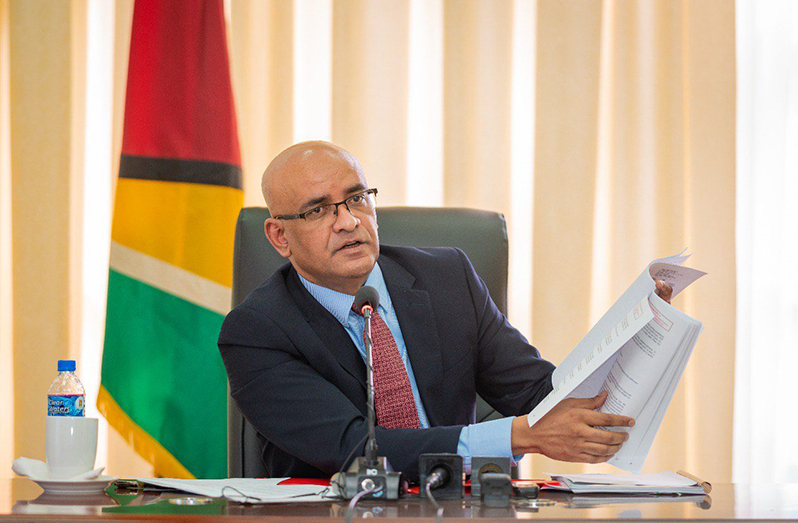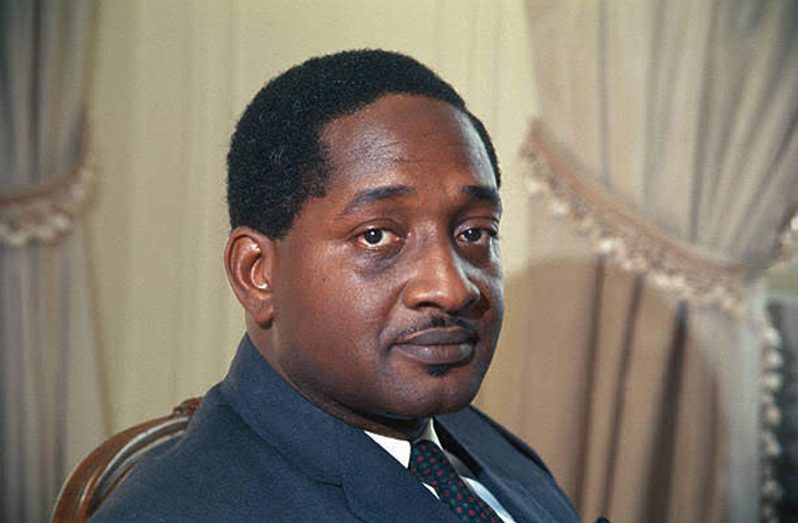THE late President Linden Forbes Burnham and leader of the People’s National Congress (PNC), received US$5,000 per month for two years from the United States Central Intelligence Agency (CIA) to support the party’s campaign.
The proof was provided by General Secretary of the People’s Progressive Party/Civic (PPP/C), Dr. Bharrat Jagdeo, on Thursday last. He quoted from the memorandum for the Treasury Committee, Washington, dated May 28, 1969.
He was at the time responding to a challenge by PNC member and former Mayor of Georgetown, Hamilton Green who wanted Jagdeo to provide proof of Burnham’s involvement with the CIA.
Jagdeo read the document which stated, “Prime Minister Forbes Burnham of Guyana, who has previously received covert assistance from CIA, requested that the Agency provide $10,000 a month for two years to support his efforts to build his party, the People’s National Congress (PNC), into an effective, permanently organized political party. Ambassador Delmar Carlson [text not declassified] recommend approval of this request in the amount of $5,000 per month for two years, with the understanding that Burnham be aware that the subsidy would be reviewed at the end of the first year and could be terminated if the PNC had not made satisfactory progress. Burnham has been told that we are seeking policy approval for the $5,000 monthly subsidy. Assistant Secretary Charles Meyer concurs in this proposal.”
According to declassified documents, the administration of US President, Richard M. Nixon continued in the Johnson administration of covert opposition to Cheddi Jagan, the Marxist leader of British Guiana’s People’s Progressive Party (PPP).
The U.S. Government had attempted, through covert means, to prevent Jagan from coming to power since 1962 by providing covert assistance to the PNC from 1964 to 1968. After Burnham’s election in 1968, U.S. covert assistance continued.

In June 1969, the 303 Committee approved a proposal that Burnham and the PNC be provided with US$5,000 per month in covert funding for another two years. Funding was set to begin in July 1969. After one year, the programme would be evaluated to determine if its existence was necessary.
The document revealed that the covert support funded a small group of paid PNC organisers, essential sections of the PNC’s central office, and dissemination of party information.
Ultimately, the U.S. Government hoped the PNC would use the covert support to become a well-organised political party, which could effectively compete in future national elections.
In June 1970, the 40 Committee (the successor to the 303 Committee) decided to extend covert assistance to Burnham’s political party at the same US$5,000 per month level for another year. Previous covert support had helped the PNC.
However, the 40 Committee concluded that despite U.S. funding, Burnham and the PNC had not made any significant inroads into the East Indian community, the vast majority of which supported the PPP.
The Committee believed that continued secret funding for the PNC was necessary to accomplish this goal.
In June 1971, the 40 Committee concluded that the covert assistance had helped Burnham develop the PNC into an effective political entity. As scheduled, covert assistance was terminated.
In late 1972, the 40 Committee re-visited the idea of giving covert assistance to Burnham but decided against it.




.jpg)










